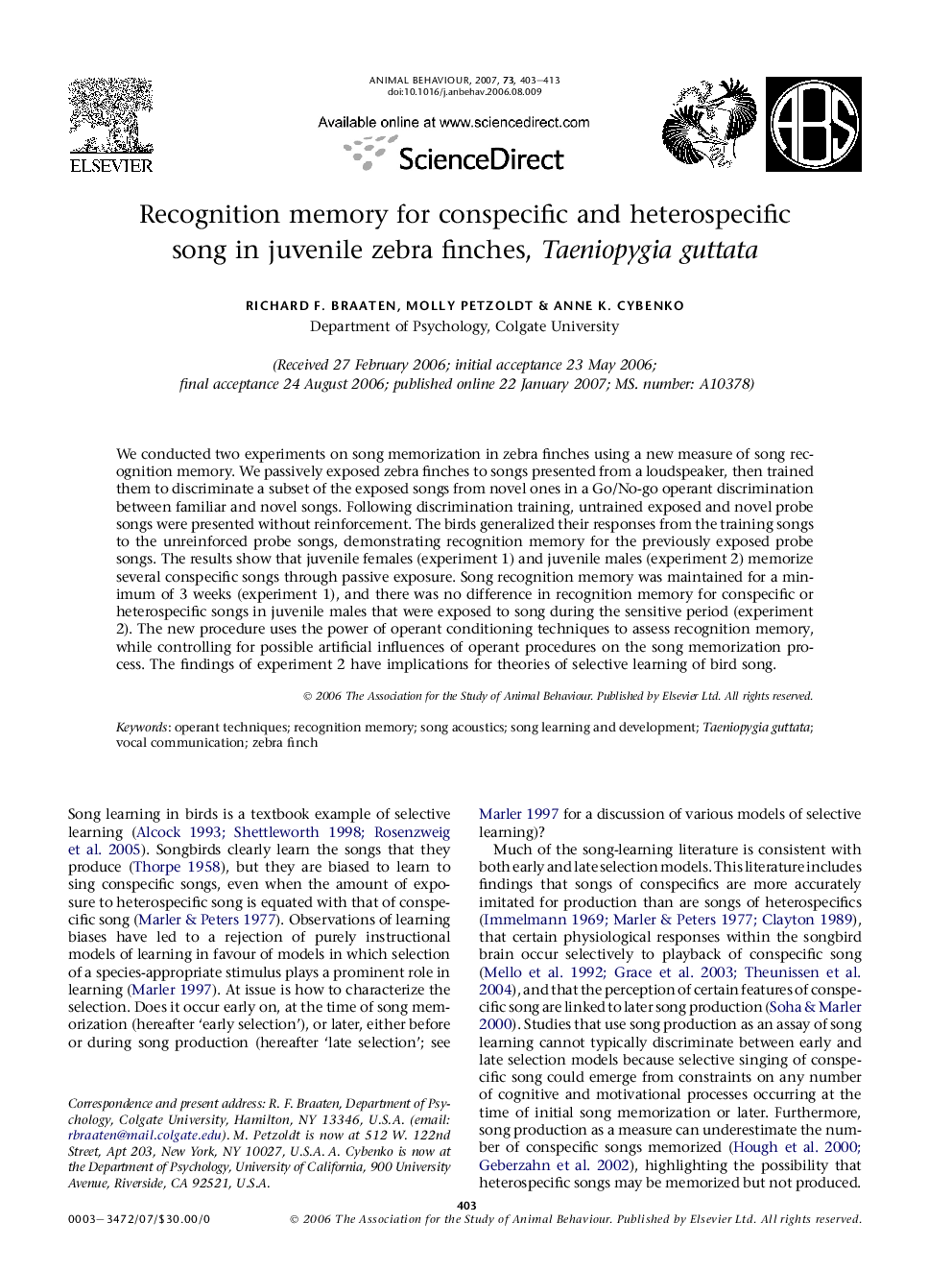| Article ID | Journal | Published Year | Pages | File Type |
|---|---|---|---|---|
| 2419034 | Animal Behaviour | 2007 | 11 Pages |
We conducted two experiments on song memorization in zebra finches using a new measure of song recognition memory. We passively exposed zebra finches to songs presented from a loudspeaker, then trained them to discriminate a subset of the exposed songs from novel ones in a Go/No-go operant discrimination between familiar and novel songs. Following discrimination training, untrained exposed and novel probe songs were presented without reinforcement. The birds generalized their responses from the training songs to the unreinforced probe songs, demonstrating recognition memory for the previously exposed probe songs. The results show that juvenile females (experiment 1) and juvenile males (experiment 2) memorize several conspecific songs through passive exposure. Song recognition memory was maintained for a minimum of 3 weeks (experiment 1), and there was no difference in recognition memory for conspecific or heterospecific songs in juvenile males that were exposed to song during the sensitive period (experiment 2). The new procedure uses the power of operant conditioning techniques to assess recognition memory, while controlling for possible artificial influences of operant procedures on the song memorization process. The findings of experiment 2 have implications for theories of selective learning of bird song.
